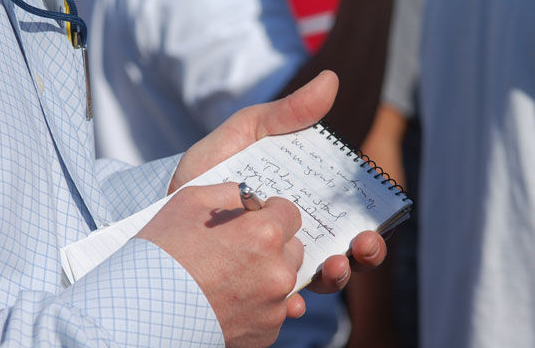Published: 27 August 2014
Region: Worldwide
 Journalist David Tuller, author of the Media Diversity Institute’s “Reporting Diversity Guide”, teaches reporting on public health at the Berkeley Graduate School of Journalism. He frequently writes for The New York Times covering a wide range of topics including infectious diseases, gay men’s health and recently, the marginalised groups reporting and the difference between the academic and journalistic pieces.
Journalist David Tuller, author of the Media Diversity Institute’s “Reporting Diversity Guide”, teaches reporting on public health at the Berkeley Graduate School of Journalism. He frequently writes for The New York Times covering a wide range of topics including infectious diseases, gay men’s health and recently, the marginalised groups reporting and the difference between the academic and journalistic pieces.

In the interview for the Media Diversity Institute (MDI) website, Mr Tuller reveals some of the ways to more inclusive and fair reporting.
MDI: Do you think that reporters need to change the way they write about marginalized groups, and if so, what would be your tips?
David Tuller: I think reporters always need to be conscious of the language they’re using when talking about marginalized groups, such as members of other ethnic groups, LGBT people, the disabled, and immigrants. Reporters, like others in society, often have minimal contact with members of these groups and may not even be aware that they might be insulting or offending people in how they write or talk about these issues. They might not understand that they are disseminating inaccurate biases or stereotypes. Sometimes, of course, this happens out of conscious prejudice, but often it is simply out of ignorance or lack of awareness.
I think it’s important to spend as much time with individual members of marginalized groups as possible. Reporters need to have an ability to empathize, to understand what it is like to be in another person’s situation. That means asking people in marginalized groups what they themselves prefer to be called, what kinds of prejudice and discrimination they experience, what mistakes reporters make in disseminating information about them, and so on.
MDI: Do you think that journalism has developed into more responsibleand more inclusive forms?
David Tuller: I think in some places, yes. In other places, no. The media obviously isn’t the only factor in this, but it can play a tremendous role in exacerbating tensions and a similarly huge role in making things better. It’s normal for people to have biases and prejudices—we all have them, to some extent, and journalists are no different. Organizations like MDI have helped challenge such flawed perspectives by highlighting them and working with journalists to encourage them to question their own ideas and practices. In some cases, social conflicts are so entrenched that making change is very difficult, if not impossible. In others, reporters have been fairly responsive in changing their tone and language when writing about people different from themselves
MDI: What is your opinion on digital media and online platforms promoting a better understanding of the way we speak/write/think about marginalized groups?
David Tuller: I wouldn’t say that digital media necessarily does a better job in this realm. In some cases, it might; in other cases, less so. Certainly those working in digital media have ready access to all the information that marginalized groups themselves put online. So at some point there is really no excuse for remaining clueless about these issues. But being online obviously doesn’t by itself make you smarter or more empathetic or less likely to hold prejudices that are harmful and offensive to others. Whatever the medium, it’s the reporter’s responsibility to inform themselves on these issues of they intend to cover them.